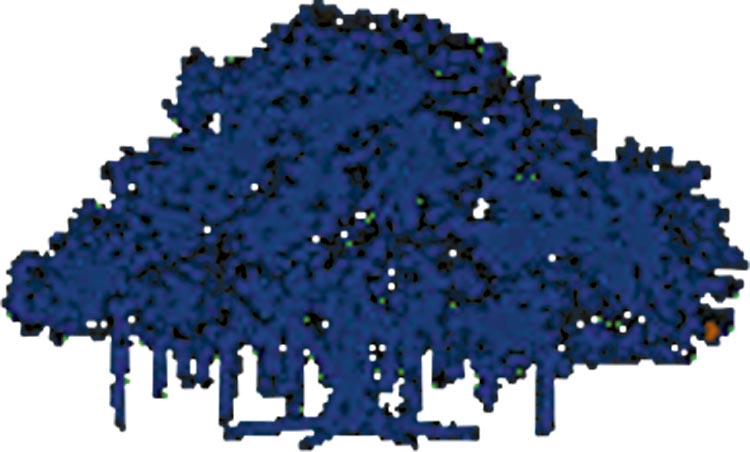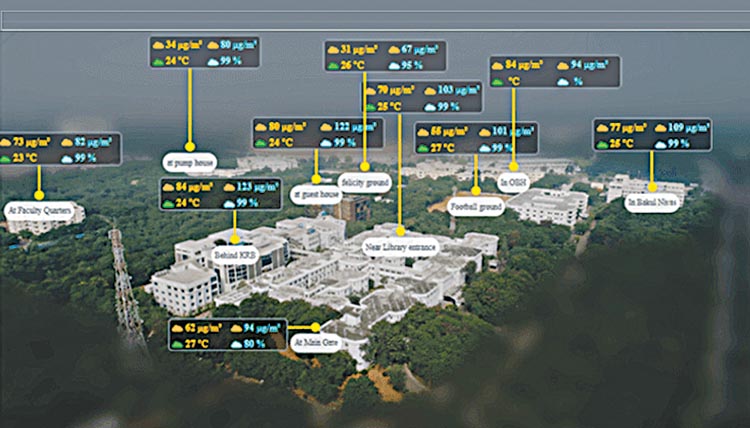Smart City Living Lab at IIITH, in collaboration with the Government of Telangana and NIUM, announced the 3 winners of Water Challenge. Oceo Water Pvt Ltd – Detecting Water Leaks in Pipelines from Space (Jalashay): AI-enabled hydrological analytics produced from satellite photos will assist public utilities in precisely forecasting and detecting water leakages in water transmission networks without having to be physically present on the ground. IIITH – Smart Water Meter Solutions: A feasible option for expensive digital water metres is a low-cost retrofit for digitisation of analogue water metres. Kritsnam Technologies Pvt. Ltd – water flow meter: For bulk water supply, an inline ultrasonic flow metre is used. An excellent tool for monitoring water flow in pipelines in real time. Contestants had to develop feasible solutions for cities’ in the areas of non-revenue water (water revenue lost due to unaccounted water, pipe-breakage or lost in tanks or in pilferage, etc.), water quality and quantity monitoring, wastewater industrial/sewerage etc and rain-water, water drains and open innovation.
Selected startups were given the opportunity to pitch to Smart city Technology MNCs and Smart city officials during the two-month programme. After multiple rounds and comprehensive screening, the panellists from academia (IIITH), government entities such as Ministry of Electronics and Information Technology (MEITY), Hyderabad Metropolitan Water Supply and Sewerage Board (HMWSSB), National Institute of Urban Management (NIUM), commercial consultants from World Resources Institute (WRI), and technology partners -European Business & Technology Center (EBTC) shortlisted three finalists. The three winning startups deployed their solution at the smart campus at IIITH and will be given the opportunity to do a PoC in one of the districts in Telangana which will be supported by NIUM and HMDA. “The Smart City Living Lab is an attempt to discover cutting edge innovations with smart city use cases, that can benefit from research and also the network of partners,” said, Ramesh Loganathan, Professor- Co-Innovation and Head Research/Innovation Outreach, IIITH. In December 2020, the Smart City Living Lab opened its doors. The Smart Campus is being built up, as well as the data lake for live sensor data. Two roundtable sessions with a few Smart City CEOs and other thought leaders have been organised. The Living Lab will assist startups recognised through the hurdles in improving their products and gaining market access.
The Smart City Research Center is set up with support from MEITY (Government of India), Smart City Mission and Government of Telangana at IIITH. The research center includes a Living Lab, that is a setup with support from EBTC and Amsterdam Innovation Arena. The Building on the Smart Campus @ IIITH Smart City Research Center is based on the following Objectives: There is a huge push for smart cities in India under the Smart Cities Mission, a new initiative by the Government of India to drive economic growth and improve the quality of life of people by enabling local development and harnessing technology to create smart outcomes for citizens. In this ambitious project, 100 cities are being covered for the duration of 5 years with a budget of Rs.100 crore per city per year. The goal of the Living Lab plan is to create an urban area enhancing three value domains: social, economic and environmental. Thus, developed Living Lab shall enable the following:
1) Get expertise in IoT for Smart Cities related research and deployment
2) Generate data for research
3) Creation of a viable innovation and demand driven ecosystem in universities.
4) Provide a test bench for IoT based Smart City implementations to start-ups as well as big companies

About IIIT Hyderabad:
The International Institute of Information Technology, Hyderabad (IIITH) is an autonomous research university founded in 1998 that focuses on the core areas of Information Technology, such as Computer Science, Electronics and Communications, and their applications in other domains through inter-disciplinary research with great social impact. Some of its research domains include Visual Information Technologies, Human Language Technologies, Data Engineering, VLSI and Embedded Systems, Computer Architecture, Wireless Communications, Algorithms and Information Security, Robotics, Building Science, Earthquake Engineering, Computational Natural Sciences and Bioinformatics, IT in Agriculture and e-Governance.

